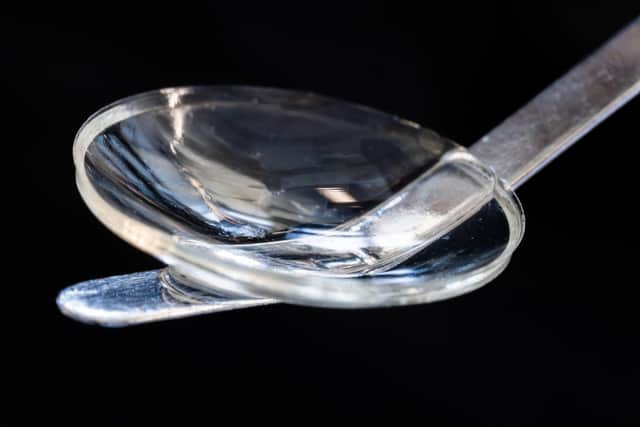Pig skin implant can restore eyesight to blind, study suggests
In a pilot study, the implant – made from collagen protein from the animal – restored vision to 20 people with diseased corneas, most of whom were blind prior to receiving the implant.
Researchers say their promising results bring hope to those suffering from corneal blindness and low vision.
Advertisement
Hide AdAdvertisement
Hide AdThe bio-engineered implant is an alternative to transplants of donated human corneas, which are scarce in countries where the need for them is greatest.


The cornea is the transparent part of the eye that covers the iris and pupil, and allows light to enter the eye – crucial for the ability to see.
Neil Lagali, professor at the department of biomedical and clinical sciences at Linkoping University, Sweden, said: “The results show that it is possible to develop a biomaterial that meets all the criteria for being used as human implants, which can be mass produced and stored up to two years and thereby reach even more people with vision problems.
“This gets us around the problem of shortage of donated corneal tissue and access to other treatments for eye diseases.”
Experts estimate 12.7 million people around the world are blind due to damaged or diseased corneas, but only one in 70 patients receives a cornea transplant.
And those who need cornea transplants tend to live in low and middle-income countries in which access to treatments is very limited.
Mehrdad Rafat is the researcher and entrepreneur behind the design and development of the implants, and chief executive of LinkoCare Life Sciences AB, which manufactures the bioengineered corneas used in the study.
He said: “We’ve made significant efforts to ensure that our invention will be widely available and affordable by all and not just by the wealthy.
Advertisement
Hide AdAdvertisement
Hide Ad“That’s why this technology can be used in all parts of the world.”
To create an alternative to the human cornea, the researchers used collagen molecules derived from pig skin that is a by-product of the food industry, making it easy to access.
The researchers have also developed a new, minimally invasive method for treating the disease keratoconus, in which the cornea becomes so thin that it can lead to blindness.
Comments
Want to join the conversation? Please or to comment on this article.